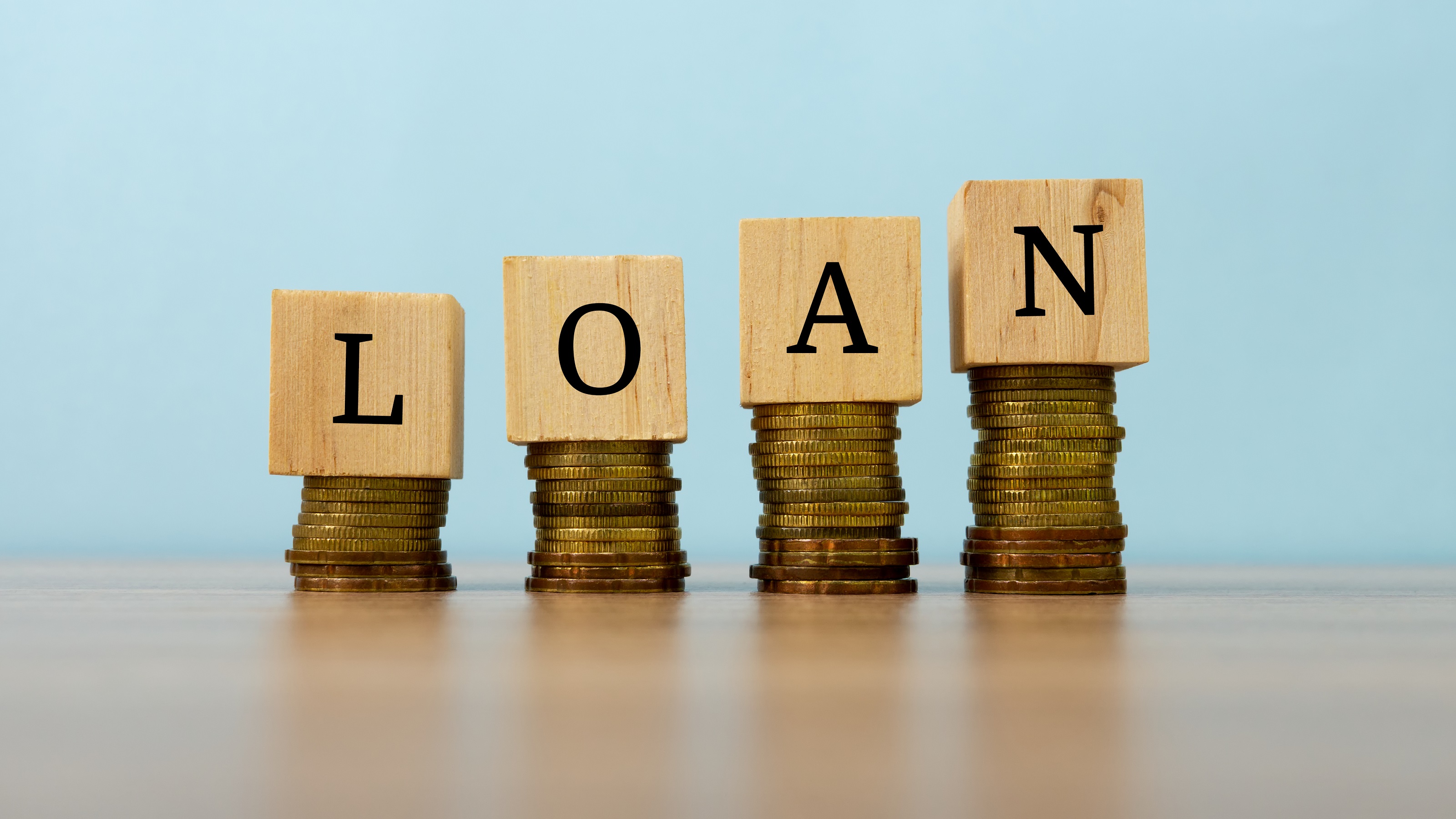Top Five Benefits of Peer-to-Peer Lending
Flexibility of terms and fast application processing are just two of the perks of P2P lending over traditional lending.


Profit and prosper with the best of Kiplinger's advice on investing, taxes, retirement, personal finance and much more. Delivered daily. Enter your email in the box and click Sign Me Up.
You are now subscribed
Your newsletter sign-up was successful
Want to add more newsletters?

Delivered daily
Kiplinger Today
Profit and prosper with the best of Kiplinger's advice on investing, taxes, retirement, personal finance and much more delivered daily. Smart money moves start here.

Sent five days a week
Kiplinger A Step Ahead
Get practical help to make better financial decisions in your everyday life, from spending to savings on top deals.

Delivered daily
Kiplinger Closing Bell
Get today's biggest financial and investing headlines delivered to your inbox every day the U.S. stock market is open.

Sent twice a week
Kiplinger Adviser Intel
Financial pros across the country share best practices and fresh tactics to preserve and grow your wealth.

Delivered weekly
Kiplinger Tax Tips
Trim your federal and state tax bills with practical tax-planning and tax-cutting strategies.

Sent twice a week
Kiplinger Retirement Tips
Your twice-a-week guide to planning and enjoying a financially secure and richly rewarding retirement

Sent bimonthly.
Kiplinger Adviser Angle
Insights for advisers, wealth managers and other financial professionals.

Sent twice a week
Kiplinger Investing Weekly
Your twice-a-week roundup of promising stocks, funds, companies and industries you should consider, ones you should avoid, and why.

Sent weekly for six weeks
Kiplinger Invest for Retirement
Your step-by-step six-part series on how to invest for retirement, from devising a successful strategy to exactly which investments to choose.
If you needed a small loan to fund car repairs, buy a new car or make crucial kitchen renovations, where would you go?
You could certainly go to a bank, but the application process may take longer than expected, and the requirements might be more stringent for those with fair credit. If you’re just starting out, or if you are on the journey to enhance your credit, an online marketplace lending platform could provide a smoother, more successful experience for obtaining the funding you need to achieve your dreams while improving your overall financial well-being.
We at Prosper introduced peer-to-peer (P2P) lending to the U.S. in 2005, and nearly 20 years later, our personal loan platform has facilitated more than $26 billion in loans for more than 1.5 million Americans.
From just $107.88 $24.99 for Kiplinger Personal Finance
Become a smarter, better informed investor. Subscribe from just $107.88 $24.99, plus get up to 4 Special Issues

Sign up for Kiplinger’s Free Newsletters
Profit and prosper with the best of expert advice on investing, taxes, retirement, personal finance and more - straight to your e-mail.
Profit and prosper with the best of expert advice - straight to your e-mail.
A wider range of access to loans
The introduction of P2P lending in 2005 was a breakthrough in giving a wider range of Americans access to loans that help them meet financial needs, consolidate their debt and more. It also provided an opportunity for individuals to expand and diversify their investment portfolio beyond conventional options and achieve solid returns by investing in “notes,” or shares, of borrowers’ unsecured personal loans.
To meet the growing demand in this space, P2P lending, which originally focused on retail investors, expanded to include institutional investors under a broader umbrella called marketplace lending.
Below is a list of the top five advantages over traditional lending that some marketplace lending providers, and specifically P2P lending, can offer:
- Easier qualification for those with fair or poor credit. P2P loans are typically unsecured loans provided by investors to individual borrowers or small businesses. Consumers with fair or less-than-ideal credit scores may qualify for these loans much easier than they can with bank loans — and may be able to obtain lower interest rates.
- Fast, seamless online application process. P2P and other online marketplace platforms allow consumers to apply online for loans and identify the loans that would be the best fit for them, in a matter of minutes. Depending on the platform, potential borrowers can, after creating an online account and obtaining an interest rate estimate, authorize a “soft pull” credit check that won’t impact their credit scores — and all before formally applying for a loan. Some online lending platforms can also undertake “soft pull” credit checks after applications have been submitted, further protecting borrowers’ credit scores.
- Flexible terms. Depending on which marketplace lending platform a borrower uses, they can customize their monthly payments and rates — and can even make changes to their payment dates after loan agreements are signed, without having to provide a reason. Certain platforms may also offer multiple ways for borrowers to make payments, ranging from phone or mail to mobile apps and electronic fund transfer.
- Getting money fast. Certain lending platforms enable borrowers to receive their money as quickly as the next business day.
- Solid returns for investors. P2P lending enables borrowers and individual investors to succeed and grow together. Usually, when the borrowers begin making monthly payments and interest, the money is distributed to the contributing investors, minus any platform and servicing fees. The loan payments from borrowers can provide a source of passive monthly income for investors. Furthermore, investors may have the opportunity to invest in loan listings for as little as $25.
Consumers need to proactively protect themselves from bad actors in this space, and the personal finance marketplace in general. A good rule of thumb is to always vet the lender/company, read customer reviews, take the time to read and understand the loan terms in-depth and check the lender/company’s cybersecurity measures. The latter is especially important for keeping personal information well-protected.
Household debt has been climbing
The benefits that peer-to-peer lending holds over traditional lending are impressive — and they couldn’t come at a better time, given that U.S. household debt has been increasing. During the first quarter of 2024, total U.S. household debt increased by $184 billion to $17.69 trillion, according to the Federal Reserve Bank of New York. Americans’ mortgage balances rose by $190 billion to $12.44 trillion, and their auto loan debt increased by $9 billion to $1.62 trillion. Meanwhile, Americans’ home equity lines of credit rose for the eighth consecutive quarter since the first quarter of 2022, increasing by $16 billion to $376 billion.
In addition, the New York Fed reported that almost 9% of annualized credit card balances and 8% of annualized auto loans entered into delinquency during the first quarter of this year.
With Americans’ debt balances only continuing their upward trajectory, P2P lending can provide a viable, advantageous alternative for obtaining the money they need to achieve success and improve their financial well-being.
Prosper's borrower payment dependent notes (“Notes”) are offered pursuant to a Prospectus available at: prosper.com/prospectus. Notes are not guaranteed or FDIC-insured, and investors may lose some or all of the principal invested. Investors should carefully consider these and other risks and uncertainties before investing.
Related Content
- Six Tasks That Can Help You Feel Better About Your Money
- Need Help Digging Out of Debt? What You Can Do
- Four Ways to Smile More When You Think of Your Spending
- Six Ways to Improve Your Financial Wellness
- Is Your Money Mindset Unhealthy? You Can Change It
Profit and prosper with the best of Kiplinger's advice on investing, taxes, retirement, personal finance and much more. Delivered daily. Enter your email in the box and click Sign Me Up.

As Chief Executive Officer of Prosper Marketplace, David oversees the company’s vision, overall operations and performance. David joined the company in March 2016 as Chief Financial Officer and was named CEO in December 2016. David brings more than 20 years of financial management experience to this role. Prior to joining Prosper Marketplace, David served as Senior Financial Officer of USAA’s Chief Operating Office, where he oversaw USAA’s real estate unit, bank, P&C and life insurance companies, investment management company and the call centers/distribution functions.
-
 5 Vince Lombardi Quotes Retirees Should Live By
5 Vince Lombardi Quotes Retirees Should Live ByThe iconic football coach's philosophy can help retirees win at the game of life.
-
 The $200,000 Olympic 'Pension' is a Retirement Game-Changer for Team USA
The $200,000 Olympic 'Pension' is a Retirement Game-Changer for Team USAThe donation by financier Ross Stevens is meant to be a "retirement program" for Team USA Olympic and Paralympic athletes.
-
 10 Cheapest Places to Live in Colorado
10 Cheapest Places to Live in ColoradoProperty Tax Looking for a cozy cabin near the slopes? These Colorado counties combine reasonable house prices with the state's lowest property tax bills.
-
 Don't Bury Your Kids in Taxes: How to Position Your Investments to Help Create More Wealth for Them
Don't Bury Your Kids in Taxes: How to Position Your Investments to Help Create More Wealth for ThemTo minimize your heirs' tax burden, focus on aligning your investment account types and assets with your estate plan, and pay attention to the impact of RMDs.
-
 Are You 'Too Old' to Benefit From an Annuity?
Are You 'Too Old' to Benefit From an Annuity?Probably not, even if you're in your 70s or 80s, but it depends on your circumstances and the kind of annuity you're considering.
-
 In Your 50s and Seeing Retirement in the Distance? What You Do Now Can Make a Significant Impact
In Your 50s and Seeing Retirement in the Distance? What You Do Now Can Make a Significant ImpactThis is the perfect time to assess whether your retirement planning is on track and determine what steps you need to take if it's not.
-
 Your Retirement Isn't Set in Stone, But It Can Be a Work of Art
Your Retirement Isn't Set in Stone, But It Can Be a Work of ArtSetting and forgetting your retirement plan will make it hard to cope with life's challenges. Instead, consider redrawing and refining your plan as you go.
-
 The Bear Market Protocol: 3 Strategies to Consider in a Down Market
The Bear Market Protocol: 3 Strategies to Consider in a Down MarketThe Bear Market Protocol: 3 Strategies for a Down Market From buying the dip to strategic Roth conversions, there are several ways to use a bear market to your advantage — once you get over the fear factor.
-
 For the 2% Club, the Guardrails Approach and the 4% Rule Do Not Work: Here's What Works Instead
For the 2% Club, the Guardrails Approach and the 4% Rule Do Not Work: Here's What Works InsteadFor retirees with a pension, traditional withdrawal rules could be too restrictive. You need a tailored income plan that is much more flexible and realistic.
-
 Retiring Next Year? Now Is the Time to Start Designing What Your Retirement Will Look Like
Retiring Next Year? Now Is the Time to Start Designing What Your Retirement Will Look LikeThis is when you should be shifting your focus from growing your portfolio to designing an income and tax strategy that aligns your resources with your purpose.
-
 I'm a Financial Planner: This Layered Approach for Your Retirement Money Can Help Lower Your Stress
I'm a Financial Planner: This Layered Approach for Your Retirement Money Can Help Lower Your StressTo be confident about retirement, consider building a safety net by dividing assets into distinct layers and establishing a regular review process. Here's how.